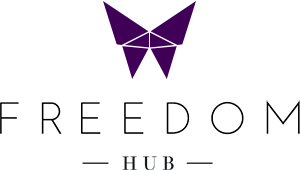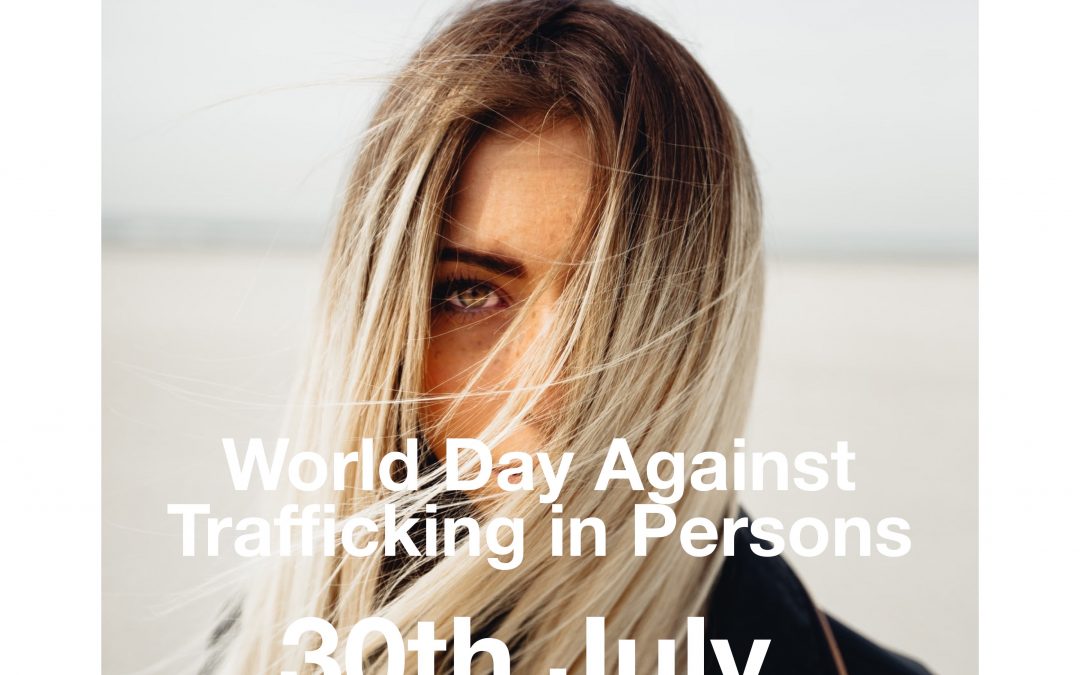This week is UN World Day Against Trafficking in Persons – 30th July.
Human trafficking, is a widespread violation of the most basic human rights, and touches communities the world over. It is in every country. Incredibly it is in every industry. Also, while it has to be the lowest of all crimes, it is one of the most profitable. So will it ever go away?
If we all do our bit, it can end and this blog will help you decide what you can do. Here are 4 things you can do:
1. Know the Facts about Trafficking so you can Raise Awareness
The number of trafficked persons in the world is referred to as a “hidden figure”, as the vast majority of trafficking in persons goes undetected. Trafficking in persons is one of the most common forms of modern slavery.
- an estimated 40.3 million people are in modern slavery, including 24.9 million in forced labour and 15.4 million in forced marriage.
- Of 40.3 million people held in modern slavery, with nearly 40% residing in the Commonwealth.
- It means there are 5.4 victims of modern slavery for every 1,000 people in the world.
- 1 in 4 victims of modern slavery are children.
- Out of the 24.9 million people trapped in forced labour, 16 million people are exploited in the private sector such as domestic work, construction or agriculture;
- 4.8 million persons in forced sexual exploitation, and
- 4 million persons in forced labour imposed by state authorities.
- Women and girls are disproportionately affected by forced labour, accounting for 99% of victims in the commercial sex industry, and 58% in other sectors
Trafficking is a part of the umbrella term Modern Day Slavery
Modern slavery takes many forms. The most common are:
- Human trafficking. The use of violence, threats or coercion to transport, recruit or harbour people in order to exploit them for purposes such as forced prostitution, labour, criminality, marriage or organ removal.
- Forced labour. Any work or services people are forced to do against their will under threat of punishment.
- Debt bondage/bonded labour. The world’s most widespread form of slavery. People trapped in poverty borrow money and are forced to work to pay off the debt, losing control over both their employment conditions and the debt.
- Descent–based slavery. Most traditional form, where people are treated as property, and their “slave” status was passed down the maternal line.
- Slavery of children. When a child is exploited for someone else’s gain. This can include child trafficking, child soldiers, child marriage and child domestic slavery.
- Forced and early marriage. When someone is married against their will and cannot leave. Most child marriages can be considered slavery.
Here are some links if you want to read more or research:
1. International Labour Organization: Forced labour, modern slavery and human trafficking (2020)
2. Global Slavery Index (2018)
3. United Nations Office on Drugs and Crime: Global Report on Trafficking in Persons (2018)
4. Anti-Slavery International: What is modern slavery? (2020) 5. US Trafficking in Persons Report (2020)
You can help raise awareness by first knowing these facts. Then start talking this issue with friends. You can share our blogs like this one on your social media, and also follow organisations like ours on social media to stay up to date.
2. Call on Governments to Take Action to Fight this Crime
Here are some common goals that we endorse when it comes to asking governments to take immediate action on human trafficking
- Increasing identification of and support for victims and survivors of human trafficking by providing regular, systematic training for all individuals who may come into contact with victims and survivors.
- Ensuring that victims and survivors are afforded meaningful participation in all aspects of designing, implementing and monitoring government efforts towards achieving SDG Target 8.7.
- Strengthening laws and policies which helps to prevent, identify and mitigate risk of forced labour and exploitation at all levels of public procurement and business supply chains.
- Ensuring that legislation is properly enforced through providing adequate resources and training for all actors within the justice system and by removing barriers to victim participation in the criminal justice process.
- Engaging with businesses and regional to strengthen strategic partnerships to tackle forced labour and exploitation in supply chains.
Lobbying Activity
The Freedom Hub has been very active over the last six years lobbying our government into action and collaborating with many other organisations and NGO’s to write submissions regarding our Modern Slavery Act.
Only last week, we joined with 117 other signatures in a letter to Premier Berejiklian. Basically we were asking her to bring the NSW Modern Slavery Act into force. It was passed unanimously in parliament in 2018 and it is still not implemented!! Incredible. You can read this letter in full and see all the organisations involved here.
You can help with the push to get this law into action. Here is a link to Be Slavery Free who have a step by step guide on how to write your letter, who to send it to, and how. Taking this action is just another small thing you can do this week to support the World Day Against Trafficking in Persons.
3. Help Survivors Recover and Use their Voice
So we believe raising a united voice against human trafficking includes the voices of survivors. We believe that it is important to include survivors of human trafficking in the design, implementation and monitoring of all anti-trafficking efforts. So processes and laws are relevant and they reflect on the first-hand experiences of survivors who have been trafficked. All too often, survivors’ voices are not heard in the spaces where they should lead at the forefront.
We run a Survivor School to help survivors recover from their trauma. We also offer opportunities for survivors to learn, improve skills, and find employment. Once they have been identified by the Federal Police and given the government support of a visa, centre-link and caseworkers; they have a 4 to 5 year wait until their court case. Before the Freedom Hub started, this meant going from place to place trying to get help and trying various community or TAFE courses. This often led to disappointment, inability to cope amongst groups of people and that led to heightened depression and anxiety.
Help with Unique Symptoms
We work specifically and only, with people who have experienced this crime. Therefore so we specialise and help them with their unique needs. Victims of modern slavery often have a range of health needs such as, fractures/broken bones, malnutrition, gynaecological issues, maternity, mental health and sexually transmitted diseases. Also they very often suffer from complex post traumatic stress disorder (cPTSD); they live in constant fear, anxiety and low self esteem. Added to this, they rarely have any friends or family to help and often no possessions.
Helping survivors through the first year or two of a new free life, sets them up for a great future.
And here is how we make a difference. They meet peers who understand what they are going through. There is a support system in place for as long as they need. They are prepared to manage living in community and going to TAFE or getting a job. So once their confidence is rebuilt, they regain strength and by the time their court case comes a long, they are in a much better position to face the perpetrator. Doing this alone is stressful and daunting, so many don’t come come forward. Ultimately, long term, they will find their voice and be able to help others and be the voice we require to direct laws.
You can join us by being an advocate or volunteer. Jump online and contact us.
4. Funding this Important Work
This can be as easy as having a ‘slave free’ coffee at one of our cafes, or shopping in our ‘slave free’ gift store.
When we started the Freedom Hub we wanted to fund as much of our work as possible through social entrepreneurship. Of course, as a registered Australian Charity we are very appreciative of our donors who want their tax deductible receipt and to be honest during COVID, we are relying on them. However, if we can sell more slave free products and we can sell slave free coffee and run ethical events and weddings; then more people hear about this cause and we can do our bit for an ethical economy. So as you can see we definitely believe that ‘Ethical Consumerism’ is the future. Because…..it helps everyone.
You can read this a great interview that explains more about what we do here. You can also subscribe to our monthly update here.
Our Survivor School is the only long term, wrap around, trauma specialised support for victims of trafficking and modern slavery in Australia.
–
Join our Community
If you would like to volunteer, contact us here.
Or if you would like to get our monthly up date, opt in here.
If you would like to support a survivor make, donate here. (tax deductible)
THANK YOU FOR TAKING THE TIME TO READ OUR BLOG XX (Please review it or share it with others.)

